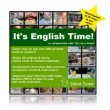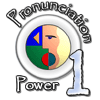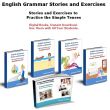Phrasal Verb "Walk Past"
by Pablo
(Colombia)
I can't find the expression 'walk past' in the dictionary.
Does it mean to pass something by walking slowly/rapidly or both? Is this a pattern and can it be used with other verbs, for instance, drive/look/talk past?
Here are some examples I thought of:
- I got shouted at, by some idiot, for walking past his house.
- I walk past bars with horrible names like Kaleidoscopes and Marionettes all the time.
- How to walk past someone you work with in the hallways at the office.
- He walked past the beautiful garden where he used to play in his childhood.
Thank you,
Pablo
Hi Pablo, In English we refer to this pairing of words as "phrasal verbs"
Phrasal Verb
verb + adverb particle in this case, "walk past".Walk past means to change your position in relation to something, by walking. So basically there is an object that you pass as you walk. So you walk past it and it is then behind you.
yes, you can use this pattern with other verbs. There are hundreds of different ones.
Get over, get on, get up, get off, climb over, look past, stretch out etc.
Also, you examples are perfect! Great job!
Cheers!
-Diana
Comments for Phrasal Verb "Walk Past"
|
||
|
||
|
Click here to add your own comments Return to ask Ola about vocabulary definitions & study tips. |
Still looking? Search the site for exactly what you need using the site search box below.
Happy exploring!
Discover these Amazing ESL Materials!
 |
 |
 |
 |
 |
 |
 |
 |
 |
 |